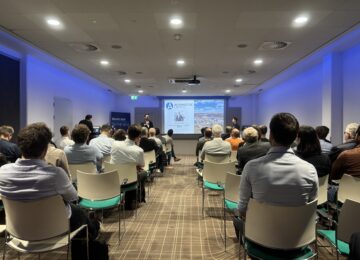Big batteries could save Dutch society €2 billion a year
In a recent publication indicates that, to ensure security of supply, TenneT sees a need for 9 gigawatts of energy storage by 2030. According to a recent study by the economic consulting firm Ecorys, such battery systems could save up to 2 billion Euros in damage from power outages annually for the Netherlands.
The social impact of batteries on security of supply
Earlier this year, the national grid operator warned TenneT that, without adequate energy storage, the Dutch could face frequent power outages. Ecorys states in a previous study by order of the ACM what value preventing supply interruptions can have. Large-scale battery systems can minimize these interruptions, adding important social value.
Commissioned by six major battery entrepreneurs, all members of Energy Storage Netherlands (ESNL), the trade association for the Dutch energy storage sector, Ecorys conducted this follow-up study. The assignment was to investigate how much social value batteries would add to the electricity system. Ecorys concluded that the social value alone could be as much as 2 billion Euros per year. It writes: "Interruption in the supply of electricity results in loss of wealth. Businesses can produce less and their equipment may suffer damage, while households have to adjust their consumption behavior. Large-scale battery systems connected to the power grid can provide electricity at times of scarcity, creating social value by increasing security of supply."
"This report shows for the first time the great social value of batteries. Let us - as in countries around us - make an exception for batteries in the transport tariffs that financially enables the realization of batteries in the Netherlands and no longer threatens our national security of supply", says Jeroen Neefs of ESNL.
"This value is in addition to the contributions that batteries make to society in the form of lower and more stable energy prices, but also because, for example, more energy from solar and wind will soon be able to be unlocked, allowing Dutch CO2 emissions to be reduced, or because grid operators will soon pay lower procurement costs to keep the grid balanced," said Jeroen Althoff (on behalf of the six battery developers).
Facts that additionally deserve attention
- TenneT indicates that by 2030 the Netherlands will need 9 gigawatts of batteries for security of supply
- By the end of 2023, "only" 150 megawatts will be operational.
- Current transmission rates make large battery projects financially unfeasible.
- High Dutch tariffs create an uneven playing field with neighboring countries, leading investors to prefer to invest abroad.
About Ecorys
Ecorys is an independent international research and consulting firm with Dutch roots, founded in 1929. Over the years, the company has specialized in economic, social and spatial development issues. Ecorys works on challenging projects for both public and private sector clients.
About the initiators of this study
This study was commissioned by the six largest independent battery developers in the Netherlands (Lion Storage, GIGA Storage, NOVAR, Semper Power, Dispatch Grid Services and LC Energy), all members of ESNL (Energy Storage Netherlands). ESNL is the trade association of the Dutch energy storage sector. Together with technology companies, knowledge institutions, grid operators and financiers, ESNL works towards a stable, independent and sustainable energy supply. This makes Energy Storage NL the advocate, networker and knowledge center for Dutch energy storage sector.





